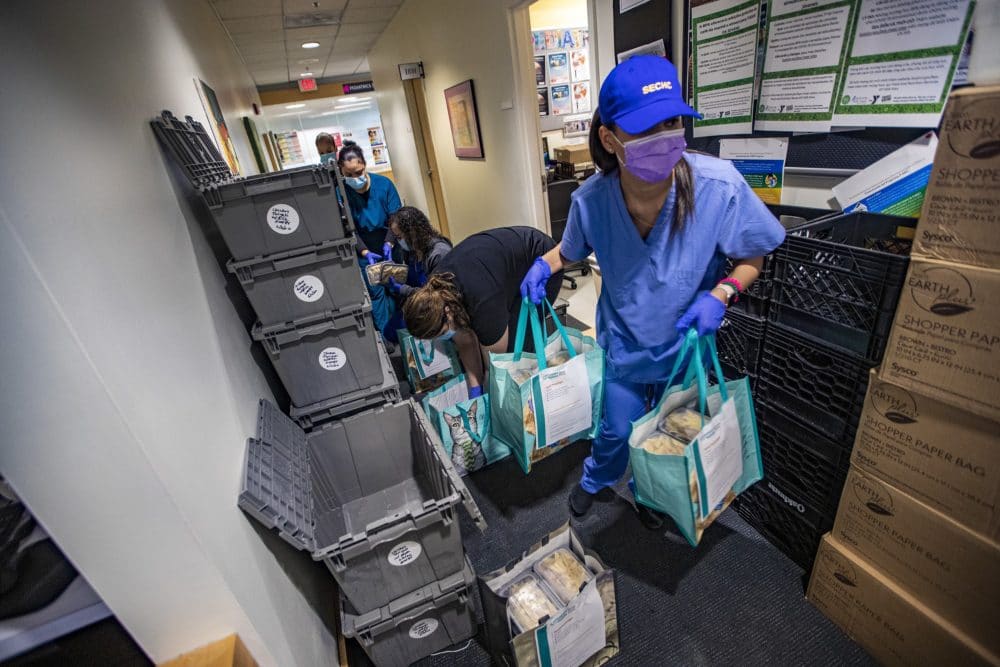AmeriCorps Members In Mass. Play ‘Uplifting’ Essential Roles During Pandemic
After COVID-19 shut down schools across the country, FoodCorps service members wanted to make sure they were still connecting with their students.
Join our corps! Applications for 2026-2027 are now open. Apply by March 30.
After COVID-19 shut down schools across the country, FoodCorps service members wanted to make sure they were still connecting with their students.

By Lisa Mullins and Lynn Jolicoeur for WBUR
When people dedicate a year to community service, they’re in for challenging work. They might help communities recover from a natural disaster or assist families that live in extreme poverty.
Tens of thousands of people in the federal service program AmeriCorps were giving that kind of hands-on help when they were blindsided by the coronavirus pandemic.
Overnight, many of them became essential workers — doing everything from contact tracing for people who tested positive for the virus, to outreach in the homeless community, to helping build overflow medical facilities, according to an AmeriCorps spokeswoman.
National service has become so critical during the pandemic that some U.S. senators want to expand it. Last month, a bipartisan group of them introduced a bill to quickly double the size of the corps to 150,000 members, and triple it within three years.
‘Everybody Needs To Eat’
Twenty-year-old Emily Brown has been doing her AmeriCorps service through FoodCorps, one of the organizations in the national service network that gets funding from the U.S. Corporation for National and Community Service. FoodCorps works in schools to teach kids about healthy eating. Many members are also connected with their communities through a local nonprofit; Brown has been working in Gloucester through the organization Backyard Growers.
This spring, Brown and her Gloucester Public Schools students were getting ready to plant gardens. But when schools had to shut down, she had to pivot; she focused on helping the community get fed. She planted gardens around the city and gave residents soil, compost and seeds to plant their own.
“Which is such an uplifting thing to be able to do during the crisis,” Brown said. “Everybody needs to eat, and that self-sustainability and sufficiency is so empowering, especially in times like this when you’re isolated.”
But FoodCorps service members wanted to make sure they were still connecting with their students. So they got creative; some of them became chefs and teachers on YouTube. Leilani Stacy, who’s 23 and recently completed her service year at Blackstone Elementary School in Boston and the city’s Office of Food Access, posted videos of herself showing kids how to make healthy dishes.
Twenty-seven-year-old Rebecca Perrin even sang about the nutritious value of different plant parts for her first- and second-graders in Chelsea.
Perrin stepped into a new role as the coronavirus crisis intensified, answering calls at a pandemic hotline in Chelsea and coordinating the distribution of food and supplies. She did her service through a local nonprofit that partners with FoodCorps, Healthy Chelsea.
“Chelsea is already a very food insecure place to begin with. And then … there were really high rates of infection,” Perrin said. “People weren’t able to leave their homes to get food … They just felt stranded.”

FoodCorps Welcomes Inaugural Cohort of Kindred Fellows

Dohmen Company Foundation Announces $4M Investment in FoodCorps

FoodCorps Urges Protecting Child Nutrition Amid Shutdown